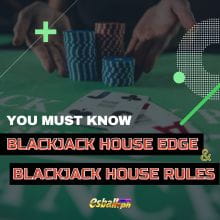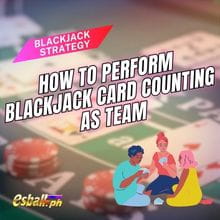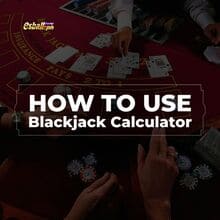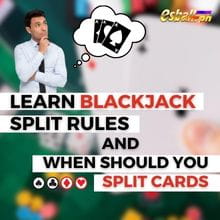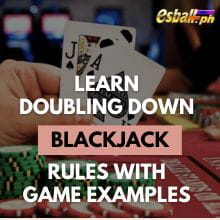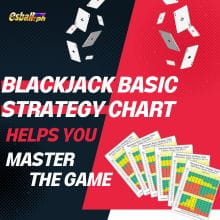How to Deal Blackjack 21 Cards in a Casino
Blackjack is a popular poker game that involves dealing cards, placing chip bets, and distributing cards. In fact, both the dealer and players should understand the rules for how to deal blackjack 21 cards, which are essential basic rules for the Blackjack game.
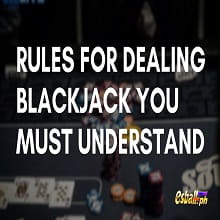
How to Deal Blackjack 21 Game Introduction
Blackjack is a popular poker game that involves dealing cards, placing chip bets, and distributing cards. In Blackjack, the dealer has a special role and responsibilities. As the dealers, they are responsible for dealing cards to the players and deciding whether to continue dealing based on their choices. In fact, both the dealer and players should understand the rules for how to deal blackjack 21 cards, which are essential basic rules for the Blackjack game.

How to Deal Blackjack 21 in a Casino
Taking out a deck of playing cards and thoroughly shuffling them, using techniques like interleaving or riffle shuffling, to ensure the cards are randomly arranged is the first rules for how to deal blackjack 21 in a casino.
Another player places a red cutting card at any position in the deck, then splits the deck into two parts, with the red cutting card at the bottom of one stack. Finally, place the other stack on top to complete the shuffle.
The cutting card is a solid red card used to mark the position for reshuffling. While not mandatory, it may be helpful during reshuffling. If playing with a large group, multiple decks can be combined to alter the game's odds.
Player Bets:
On the Blackjack (Blackjack) game table, players place their bets within small circles in front of them. Wait for each player to place bets or decide to leave the table, ensuring no dealing occurs before betting. As the dealer, you don't need to place bets for your own hand.
Dealing from Left to Right:
Draw a card from the top of the deck and slide it to the first person on your left. Flip the card while sliding and place it in the box in front of the player.
Continue dealing one card to each player from left to right. Try to place the cards in the boxes without adjusting whenever possible. If feasible, practice the skill of sliding cards along the table. Especially in professional settings, avoid letting players touch the cards.
Dealer Takes a Card:
The next step on how to deal blackjack 21 is placing one card face-down in front of yourself. Ensure the card is flat on the table to prevent players from seeing the point value. Do not look at this card after dealing.
Dealing an Additional Face-Up Card:
Starting from the player on your left, deal each person an additional face-up card, placing it on top of the first card so that the number's corner is visible. Continue dealing blackjack cards for each player at the table, and finally, place one face-up card in front of yourself. You can then begin the rounds of the Blackjack game. If you deal an Ace to yourself, ask players if they want to purchase insurance.
Players Request Additional Cards:
Ask the player on your left how they want to handle their hand. If they want to get closer to 21 points, they will choose to "hit" (request another card). Draw a card from the top of the deck, slide it to their hand, flip it open, and place it on top. Calculate the point value of the cards and inform the player of the new total. If the player wants another card, deal one more.
Player Busts:
If a player chooses to hit and the total point value of their hand reaches 22 or higher, the player busts, losing the round. Collect the player's cards and place them aside as a discard pile. Then, place the player's bet chips along with others into the chip container. The player who busts loses the round, forfeiting their entire bet.

End of the Blackjack Round
Calculating Points:
After all players complete their rounds in the Blackjack game, it's the dealer's turn. Reveal your dealt cards and calculate the point value. If one card is a 10-point card or face card and the other is an Ace, you have 21 points and automatically win against players with smaller hands.
Comparing Points Between Dealer and Players:
Check the total point value of each player's hand, determining if it is greater or less than your hand. If a player's hand is closer to 21 points than yours without busting, they win. If their hand has a lower point value, they lose, and you collect their bets. If the total point value of a player's hand is the same as yours, it's a tie, and these are the last rules for dealing blackjack strategy.
Payout of Player Chips:
Additional rules for dealing blackjack are the payouts, players receive a 1:1 payout if their hand is closer to 21 points than yours. For a Blackjack win, such as with a 10-point card and an Ace, players usually receive a 3:2 payout, earning 2.5 times their bet. In case of a tie, no one wins, and players get their bets back. For example, betting 10 chips and winning results in gaining 20 chips; winning with Blackjack results in gaining 25 chips.
How to Deal Blackjack Cards Will Influence a Game
Although dealers have limited flexibility in deviating from the casino's blackjack rules, their approach to dealing and interpreting ambiguous rules can significantly affect the game's outcomes. Here are key ways how to deal blackjack 21 cards can influence the game:
- Adhering to Rules
Dealers must follow specific rules when playing their hands, which can vary by casino and blackjack variant but are generally consistent. How a dealer adheres to these rules, such as deciding to hit or stand on certain hand values, can impact the overall game outcome. - Soft 17 Decisions
In certain blackjack variations, dealers must hit on a soft 17 (a hand with an ace valued as 11), while in others, they are required to stand. This rule can affect the dealer's potential hand value, which in turn will influence your strategy for playing your hand. - Speed on Dealing
The speed at which a dealer deals the cards can impact the game significantly. How to deal blackjack 21 cards quickly or slowly is a key on influencing the game. A quicker dealer might facilitate more hands being played in a shorter time, which could lead to greater wins or losses for players and may also separate experienced players from novices. - Player Interaction
Dealers engage with players throughout the game, shaping the table’s atmosphere and setting the overall tone. Their demeanor, professionalism, and skill in managing the game can significantly affect players' experiences and enjoyment. Additionally, their interactions can disrupt players' concentration and distract card counters.
 |
 |
Blackjack Strategy
